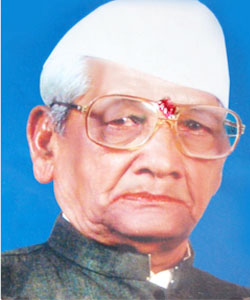



Importance of Broadcasting and Journalism- India is the world’s largest democracy in the globe as well as the second biggest population Nation. Now a days the journalism has been playing very important role in the all kinds of print and electronic media. Significantly the majority of young journalists are come from rural and semi urban areas...The media plays a vital role in a democratic society. Journalism is for the “Voice of Voiceless” expressing opinions of all those in our society. It's like a bridge between the authorities and people therefore its primary purpose is to make sure all citizens are aware of their rights. A democracy is a system of government in which all the people of a country can vote to elect their representatives. Media/Journalism came in to existence around the 1780's with the introduction of Newspapers and since then it has matured by leaps and bounds. It has played a very important role in shaping human minds. Media of today is playing an outstanding role in creating and shaping of public opinion and strengthening of society. Media is the sword arm of democracy... The press, the radio and television play a big role in the life of the society. They inform also influence the way people look at the world and make them change their views. Mass Media plays a very important role in organizing public opinion.
India is a country with 1.25 billion people and there are lots of media houses, TV channels, Radio channels and periodicals in the length and breadth of the country. So, there is no dearth of jobs for the right people. Increasing competition among the print and electronic media is giving way to fresh hiring sprees and everybody is on the lookout for younger, fresher and talented people. Fresher graduates can start as freelancers and later on go for full time job with leading periodicals, Newspapers or Television news channel.
A scope of journalism is very high in India. In fact India is the only country where right now there is freedom of press association compared to any other country in the world. There is definitely a great scope for Broadcasting a Journalism in India.....Journalism is concerned with collection and dissemination of news through the print media as well as the electronic media. This involves various areas of work like reporting, broadcasting or cable casting news items... Journalism is classified into two on the basis of media :- I) Print Media II) Electronic Media (Audio/Visual). Print Journalism includes Newspapers, Magazines and Journals. In print journalism one can work as Editors, Reporters, Columnist, and Correspondence etc. Electronic Journalism includes working for Radio, Television and the Web. In the Web skilled people are required to maintain sites by Web Newspapers and popular Newspapers and Magazines that have their own web editions. In electronic journalism one can be a reporter, writer, editor, researcher, correspondent and anchor.
Broadcasting and Journalism is basically act of writing, programs making and anchoring. It is a production or distribution of current events. It's a method of gathering information or get informed to the people. The medium is used in Journalism included print, radio, internet, television, blog and another news resource. Broadcasting and Journalism plays important role in production and changes in society. Journalism is all about dynamism and responsibility. A true responsible journalist can turn the world into a better place by the power of his pen .Now days with the onslaught of internet and social media the scope of journalism has no bounds. True journalist are like doctors in a society. They bring about revolutionary changes that are for the better for humanity. Deviating from the path of true journalism can unimaginable fatal for humanity in general.
As per NITI Ayog Osmanabad is one of the educationally backward districts. Paranda tahsil is most economically, educationally backward and climatically dry which comes in Osmanabad district. Late R. G. Shinde (Guruji) founder president of our institute who established “Shri Bhavani Shikshan Prasarak Mandal” in June 1960 and the college was established n June 1986. The institute formerly was known as, “New College”. Institution is affiliated to Dr. Babasaheb Ambedkar Marathwada University, Aurangabad. In the beginning there was Arts faculty and later in 2004 Science faculty was initiated on non-grant basis.
Afterwards in 2018 University Grant Commission, New Delhi (UGC) granted our Broadcasting and Journalism (B.Voc) faculty. In the beginning phase Department of Broadcasting and Journalism (B.Voc) was run on Clock Hour Basis (CHB) by Miss. K. S. Sarwade. In October-2018, Mr. S.B.Yadav was appointed as Assistant Professor of the Department as Temporary teaching faculty.
| Sr. No | Course | Particulars | Establishment |
|---|---|---|---|
| 1 | B.Voc | F.Y. | Aug.2018 |
| Sr. No. | Name of the Teaching staff | Designation | Tenure |
|---|---|---|---|
| 1. | Mr. S. B. Yadav | Assistant Professor | 2018 to till date |
| 2. | Miss. K.S. sarwade | Assistant Professor | 2018 to till date |